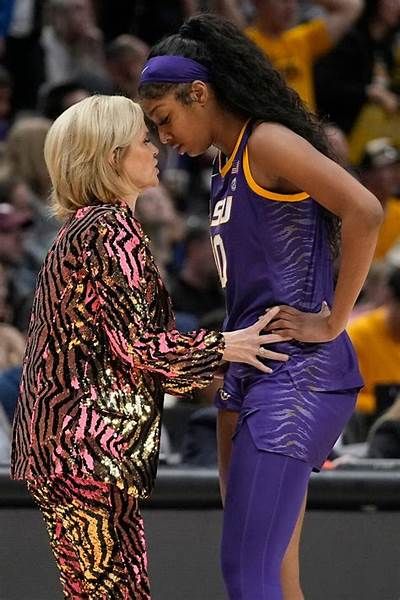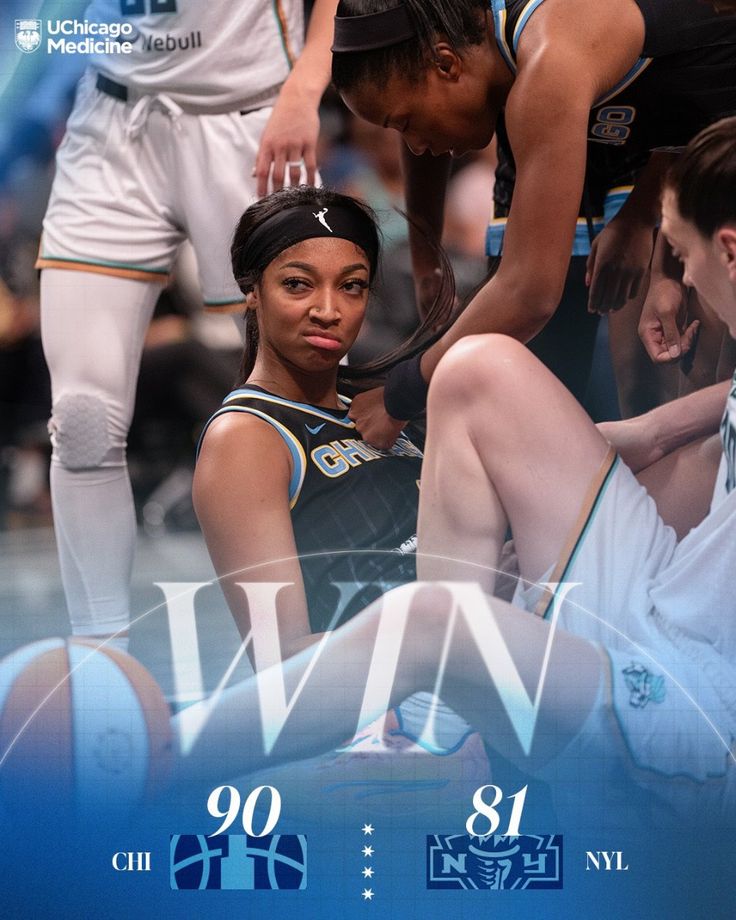Angel Reese: From Icon to Villain – The Fall of a Rising Star
The basketball world was left stunned when Angel Reese, once hailed as the future face of women’s basketball, received an indefinite suspension from the WNBA following a shocking on-court altercation that saw her strike an opponent during what should have been a routine game. The incident, which occurred in front of thousands of spectators and millions watching on television, marked a dramatic fall from grace for the 22-year-old athlete who had previously been celebrated as a role model and inspiration for young girls across America. The question that now haunts the sports community is whether the immense pressure from media coverage, social media scrutiny, and fan expectations ultimately pushed this promising young star beyond her breaking point.

Reese’s journey to professional basketball had been nothing short of extraordinary, with her collegiate career at Louisiana State University establishing her as one of the most dominant players in women’s college basketball history. Her combination of athleticism, skill, and charismatic personality made her an instant fan favorite, while her outspoken advocacy for women’s rights and social justice issues elevated her status from mere athlete to cultural icon. The transition to professional basketball, however, brought with it a level of scrutiny and pressure that few young athletes are prepared to handle, particularly in an era where every move is documented, analyzed, and criticized across multiple social media platforms.
The mounting pressure on Reese became increasingly evident in the months leading up to the incident, as her performance on the court began to fluctuate while her interactions with media became more tense and defensive. Sports psychologists and former athletes have long warned about the dangers of placing unrealistic expectations on young professional athletes, particularly those who are thrust into the spotlight at such a crucial developmental stage in their careers. The constant barrage of criticism, praise, and analysis can create a psychological burden that manifests in various ways, from anxiety and depression to explosive outbursts like the one that ultimately derailed Reese’s promising career.
The fateful incident occurred during the third quarter of what appeared to be a closely contested game, when frustration over a series of disputed calls and aggressive defensive play seemed to reach a boiling point for the young star. Witnesses described seeing Reese become increasingly agitated throughout the game, exchanging words with opponents and officials before the situation escalated to physical violence that shocked players, coaches, and spectators alike. The punch, delivered with such force that it immediately knocked her opponent to the ground, was captured by multiple camera angles and quickly spread across social media platforms, generating millions of views and sparking intense debate about sportsmanship, mental health, and the pressures facing modern athletes.

The WNBA’s response was swift and unprecedented, with league officials announcing the indefinite suspension within hours of the incident, citing the organization’s zero-tolerance policy regarding violence and unsportsmanlike conduct. This decision, while understandable from a legal and public relations standpoint, has sparked considerable debate about whether such a severe punishment fits the crime, particularly given Reese’s previously clean disciplinary record and her status as a first-time offender. Critics argue that the league’s reaction was influenced more by public pressure and media coverage than by a fair assessment of the circumstances surrounding the incident, while supporters maintain that professional athletes must be held to the highest standards of conduct regardless of their age or previous contributions to the sport.
The broader implications of this incident extend far beyond Reese’s individual career, raising important questions about how professional sports organizations support the mental health and well-being of their athletes, particularly those who are thrust into high-pressure situations at a young age. Many former players and sports psychologists have pointed out that the current system often fails to provide adequate resources for athletes struggling with the psychological demands of professional competition, leaving them vulnerable to making poor decisions that can have lasting consequences. The lack of comprehensive mental health support, combined with the intense scrutiny that comes with modern media coverage, creates a perfect storm that can destroy promising careers before they have a chance to fully develop.

As the sports world grapples with the aftermath of this shocking incident, many are calling for a more nuanced approach to discipline that takes into account the unique pressures facing young professional athletes in today’s hyperconnected society. The question remains whether Angel Reese’s indefinite suspension represents a necessary consequence for unacceptable behavior or an overly harsh punishment that fails to address the underlying issues that may have contributed to her dramatic fall from grace. Only time will tell whether this talented young athlete will have the opportunity to learn from her mistakes, seek the help she may need, and potentially return to the sport that once seemed destined to be her calling.